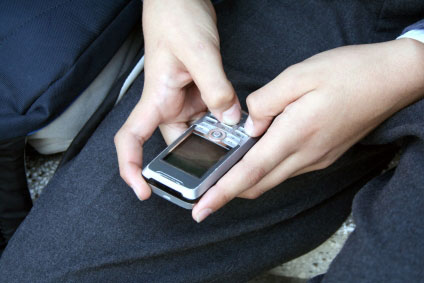Google's Unlocked Phone Could Start a Revolution

Get the world’s most fascinating discoveries delivered straight to your inbox.
You are now subscribed
Your newsletter sign-up was successful
Want to add more newsletters?

Delivered Daily
Daily Newsletter
Sign up for the latest discoveries, groundbreaking research and fascinating breakthroughs that impact you and the wider world direct to your inbox.

Once a week
Life's Little Mysteries
Feed your curiosity with an exclusive mystery every week, solved with science and delivered direct to your inbox before it's seen anywhere else.

Once a week
How It Works
Sign up to our free science & technology newsletter for your weekly fix of fascinating articles, quick quizzes, amazing images, and more

Delivered daily
Space.com Newsletter
Breaking space news, the latest updates on rocket launches, skywatching events and more!

Once a month
Watch This Space
Sign up to our monthly entertainment newsletter to keep up with all our coverage of the latest sci-fi and space movies, tv shows, games and books.

Once a week
Night Sky This Week
Discover this week's must-see night sky events, moon phases, and stunning astrophotos. Sign up for our skywatching newsletter and explore the universe with us!
Join the club
Get full access to premium articles, exclusive features and a growing list of member rewards.
If Google sells its own unlocked cell phone next month as widely rumored, it could finally bring unlocked phones to the attention of the American public. Commonplace in Europe, unlocked mobiles allow the owner to choose a cell phone provider based solely on service rather than on its phone selection.
When you purchase a cell phone on a two-year contract in the United States, you get a substantial discount that ranges from half to all of the phone’s retail price. While this might seem like a good deal, the balance of the cost of the phone is built into the provider service payment over the life of the contract. Just like a home mortgage or a car loan, you will pay a hefty premium for the privilege of spreading the payments over a two-year period. Conversely, many Europeans are used to paying full price for their phones and subsequently enjoy lower service charges while paying month-to-month.
Nokia recently introduced the N900 phone, billed as a mobile computer, and it is available only in the unlocked version. With holiday cash to burn, Dayton, OH resident Nathan Coffee tracked down the popular Nokia N900 online for well below retail and included free shipping, but what really excited him was the freedom his new purchase would bring.
"I'll never be stuck with a two-year contract again," Coffee said.
And he's right. Here's how it works: All unlocked phones contain a SIM (Subscriber Identity Module) card, a small rigid card that fits inside the phone and which can be transferred from one phone to another. The SIM card stores provider and owner information. In this country, only AT&T and T-Mobile offer unlocked SIM cards for purchase.
True wireless freedom
With the purchase of a new, unlocked phone, the user simply removes the SIM card from their old phone and inserts it into the new phone. Alternately, new unlocked SIM cards can be purchased from the two providers.
Get the world’s most fascinating discoveries delivered straight to your inbox.
An unlocked phone may be purchased through AT&T, T-Mobile or through a third party like Amazon.com. Unlocked phone users pay on a month-to-month basis. As with your landline phone or other utilities, there is no contract.
There are several advantages of an unlocked plan over the traditional two-year plan. First, monthly plans cost less. You can also buy a new phone with the features you want at any time and simply transfer the SIM card to the new phone, and perhaps give your old phone to an appreciative family member. And, if you see a better deal or want to try the coverage offered by another provider, you may switch providers at any time.
U.S. unlocked phones and 80 percent of phones worldwide operate on the GSM network. The popularity of the network puts the “mobile” into “mobile phone” and allows people to use their GSM phones in many parts of the world.
Dual purpose
LG, Samsung and Motorola also offer dual SIM card phones. This allows a single phone to act as two phones and to make and receive calls from both numbers stored in the phone. Dual SIM card phones are particularly useful for international travelers since SIM cards are often coded by country. Nokia will enter the dual SIM market in the second quarter of 2010.
A dual SIM card phone might also be useful for separating work calls from personal calls, but Google offers a simple and free service called Google Voice, which can integrate all of a user’s numbers under one Google number on most smartphones. BlackBerry and Android-based phones like the Droid can use Google Voice, but the service was rejected by Apple for the iPhone, an action that spurred an inquiry by the Federal Communications Commission.
With Google Voice underway, the timing seems right for another Google revolution: a smartphone at a subsidized price without an expensive two-year contract. How could Google afford to do that? Ads. This may sound alarming, but we are faced with ads at every turn: on buses, billboards, most Websites, network and cable TV, even before movies in the theater. We read the ones of interest and ignore the rest. For a significant savings, what's one more ad-laden screen?
 Live Science Plus
Live Science Plus






